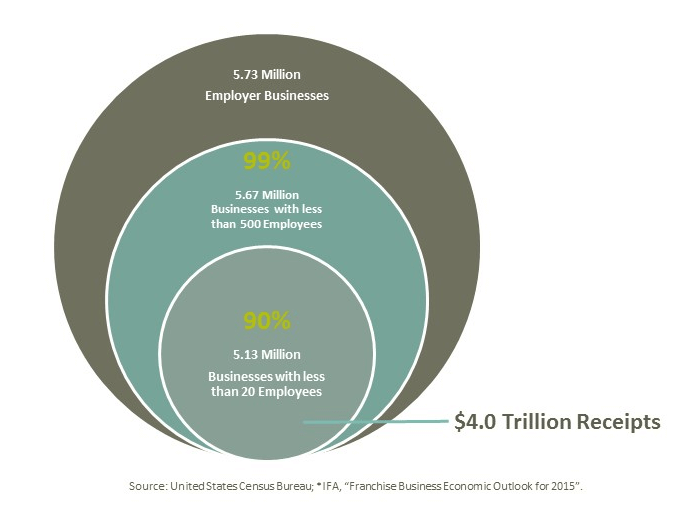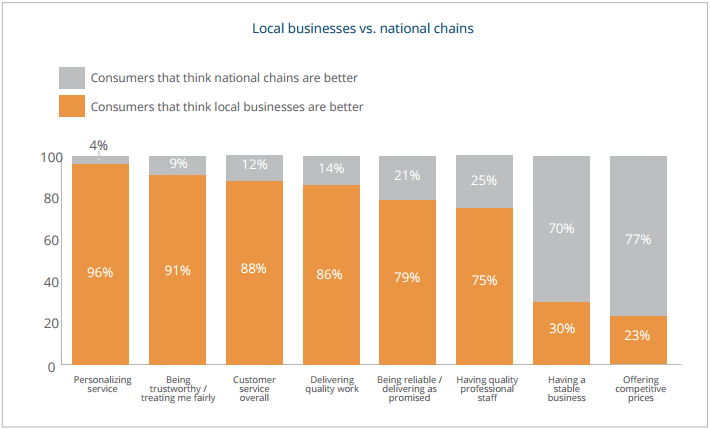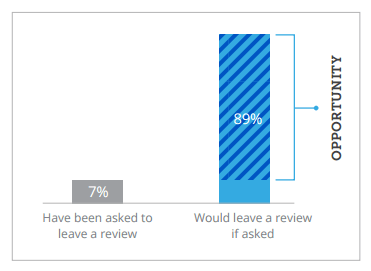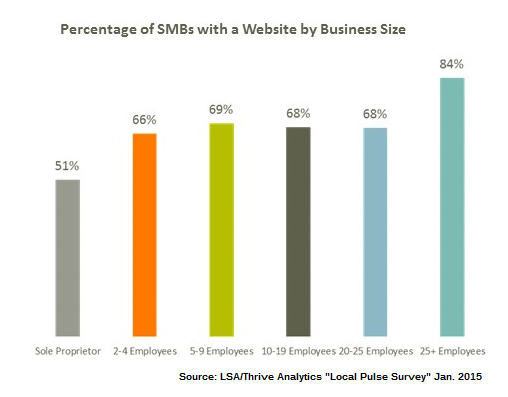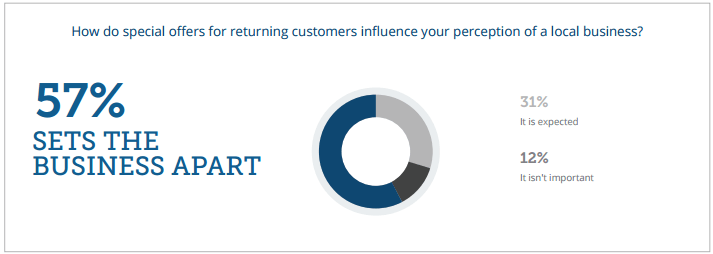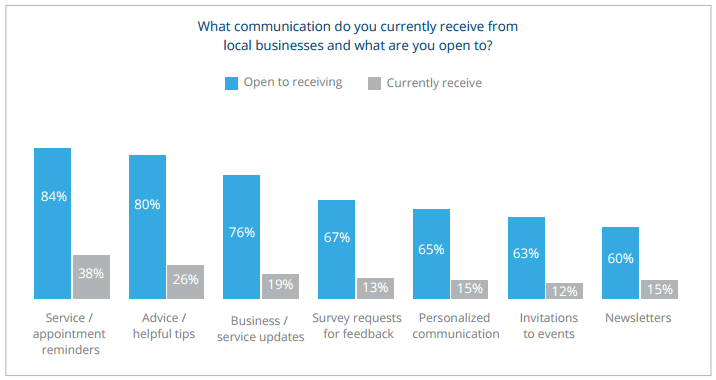5 Ways To Use What Consumers Want To Boost Local SEO Strategy
Local businesses have unique competitive advantages over larger brands, and columnist Wesley Young analyzes a study by Yodle to find ways to leverage them into an effective search strategy.

The business of local is enjoying a surge of growth, supported both by consumer demand and business interest. Small and medium-sized businesses (SMBs) have long been touted as the backbone of the economy. According to the U.S. Census Bureau’s most recent data (2012), businesses with fewer than 20 employees make up 90% of all employer businesses and produce $4 trillion in sales receipts.
But it is their future growth that has marketers taking notice. Local online marketing company Yodle released a report titled, “Yodle Insights: What Consumers Want from Local Businesses,” that surveyed more than 6,000 consumers.
Yodle found that 82% of US consumers use local businesses, and that they use them more than national chains. More importantly, 47% of consumers stated that they used local businesses more this year than last year, and 48% planned to use local businesses even more over the next 12 months. Virtually no one expressed that they would use local businesses less (1–2%).
This growth in consumer dollars spent locally is a huge opportunity for marketers to help small business. Yodle’s data on what consumers want from local businesses is key to understanding how to take advantage of this opportunity and market in a way that distinguishes local businesses in their areas of strength.
Yodle’s study reports that 42% of consumers use online reviews or social media to research a business online — and there is significant overlap and synergy among various media as consumers seek, discover and consider products and services. (For example, a search on Google for Chinese restaurants in Frisco, Texas, yields results from Yelp, Zomato, TripAdvisor, YellowPages.com and FourSquare.)
With that in mind, each of the following strategies should be part of your overall search marketing toolbox.
1. Highlight What Consumers Value About Local Businesses
Consumers value local businesses for quality. They overwhelmingly chose local businesses over national chains for providing personalized service, delivering quality work, treating customers fairly and being reliable in delivering a product or service as promised.
Each of these business traits represents a competitive advantage local businesses have over those with larger, more recognizable brand names. One way to highlight these traits is to include language in search results that communicates them.
For example, for “kitchen remodeling” search results, include in the business description terms such as “customized designs,” “hand-cut stonework,” “quality remodeling,” or other terms that remind the consumer that delivering quality is an important factor when evaluating a business.
Another way to take advantage of this consumer perception is to emphasize the fact that your business is local. Since consumers already strongly believe local businesses have the above traits, attaching the local business tag to your store immediately identifies you as a business with high quality and personal service.
So include information in your meta descriptions, landing pages and business listings on other websites (e.g., Yelp) that emphasizes your local presence, such as address, neighborhood, maps and local area code.
Even national franchises can make sure that customers know the store is locally owned. Prominently include pictures of local owners and staff and use the term “locally owned” to help draw in some of the benefits of being identified as a local business.
2. Ask Customers To Provide Positive Reviews
Yodle found that more than 75% of customers say that online reviews are important to their evaluation of a local business, with 40% expecting to see reviews and 36% believing it sets a local business apart from its competitors. What is most surprising is that almost 90% of consumers would leave a review if asked, yet only 7% have been asked.
While some businesses shy away from online reviews because of the fear that complainers are more vocal and likely to leave reviews, Yodle’s study found that 80% of customers posted reviews as the result of a positive experience with a business.
So local businesses are missing a huge opportunity for positive PR, content and reviews, all of which affect SEO and ranking. Do searches on your own business to find which sites with reviews pull up.
Taking the previous example of Chinese restaurants in Frisco, Texas, a local restaurant should monitor and seek reviews on Yelp, Zomato, TripAdvisor, YellowPages.com and FourSquare. Also, reviews are prominently used in map search results such as Google Maps.
3. Update Websites In Both Form & Content
Local Search Association (LSA) research shows that 50% of consumers state they are extremely likely to look at business websites when searching for a local business, the second highest source behind search engines — and 67% of consumers want improvements or mobile-optimized sites from those businesses, according to Yodle.
The importance of websites as a source of information is clear: Search results, online reviews or display ads contain limited information and often link back to the website, where more detailed information is available such as menus, prices, detailed service descriptions, staff qualifications and other information that consumers want to inform their buying decision.
Of course, this assumes that you have a website. LSA’s Local Pulse Survey conducted by Thrive Analytics earlier this year revealed that only 51% of sole proprietors have websites. More than 30% of businesses with fewer than 25 employees still do not have a website.
For those that do have a website, failing to maintain it — or treating it as a static asset — may be just as bad as not having one. Outdated or inaccurate information frustrates consumers and risks losing valuable customers.
Perhaps the highest profile example of problems outdated websites can cause was the case of Harvard professor Ben Edelman’s dispute about a $4 overcharge by a local restaurant. Edelman reported the restaurant to local authorities and threatened legal action. While Edelman’s boorish behavior backfired on him after the dispute went viral, the “overcharge” was the result of outdated menu prices on the website — he was correctly charged the newer prices on in-store menus.
According to LSA’s Local Pulse Survey, 56% of SMBs wait six months or more before updating their websites, and 60% are not optimized for mobile. Fresh content and mobile optimization not only help SEO, it’s what consumers want.
4. Use Offers & Deals To Compete On Price
The one big advantage national brands have is scale, which helps them offer lower prices. Yet it would seem that if prices were comparable, customers would choose what they believe to be higher quality local businesses.
On the other hand, significant price increases were rated as the number two reason that surveyed customers would stop using a local business, so setting temporary low prices to gain business just to raise them later is not a winning strategy.
The solution may be to use offers and discounts. A whopping 88% of consumers in the Yodle survey want special offers for returning customers, with 57% saying it sets the business apart and 31% saying it is expected.
Discounts allow prices to remain at a sustainable level while providing temporary or one-time offers. These offers draw in customers to experience a local business’ quality and service.
Offers and discounts are particularly effective for mobile advertising. Consumers using mobile devices to find local businesses are often on-the-go and ready to buy, and limited-time discounts offered during their search will help motivate purchases.
Thrive Analytics’ 2015 Local Search Report for LSA found that 50% of consumers who clicked on a mobile ad and made a purchase did so because the ad offered an attractive deal or discount.
Use of offers or discounts in search engine listings, display ads, landing pages and other search results was the biggest factor consumers in the Yodle study said differentiates local businesses from the competition.
5. Email Customers To Keep The Business Top Of Mind
Another area of opportunity that local businesses aren’t taking full advantage of is communicating with existing customers. Good communication with existing customers can stand in for brand reputation and management.
There are many reasons that justify reaching out to consumers: appointment reminders, the aforementioned deals and discounts, timely advice such as seasonal gardening tips, promotion of events, new services, and generally helpful news. Luckily, customers are open to receiving these communications, as the following chart from Yodle illustrates.
Businesses often cite lack of time and resources as reasons why they fail to engage in such communications. However, almost 70% of the consumers surveyed preferred to receive email communications, as opposed to phone or mail, from businesses. Email and digital services such as online booking and payments can be kept simple and automated to reduce both the cost and time needed to manage them.
Regular emails will keep a local business top of mind so that when customers conduct searches, they are likely to use narrower or targeted keywords that ensure the business turns up in results.
Conclusion
Local businesses have many competitive advantages over big name brands that can help attract customers. Consumers also often prefer doing business with local merchants. Knowing what consumers want and appealing to those desires will help win them over.
The key is when consumers search for local products and services, the results and the following actions as they discover and consider local businesses all reinforce factors valued in local business. Communicate the advantages of doing business with a local business, and customers will keep coming back — and they’ll tell their neighbors, too!
Contributing authors are invited to create content for Search Engine Land and are chosen for their expertise and contribution to the search community. Our contributors work under the oversight of the editorial staff and contributions are checked for quality and relevance to our readers. The opinions they express are their own.
Related stories
New on Search Engine Land
